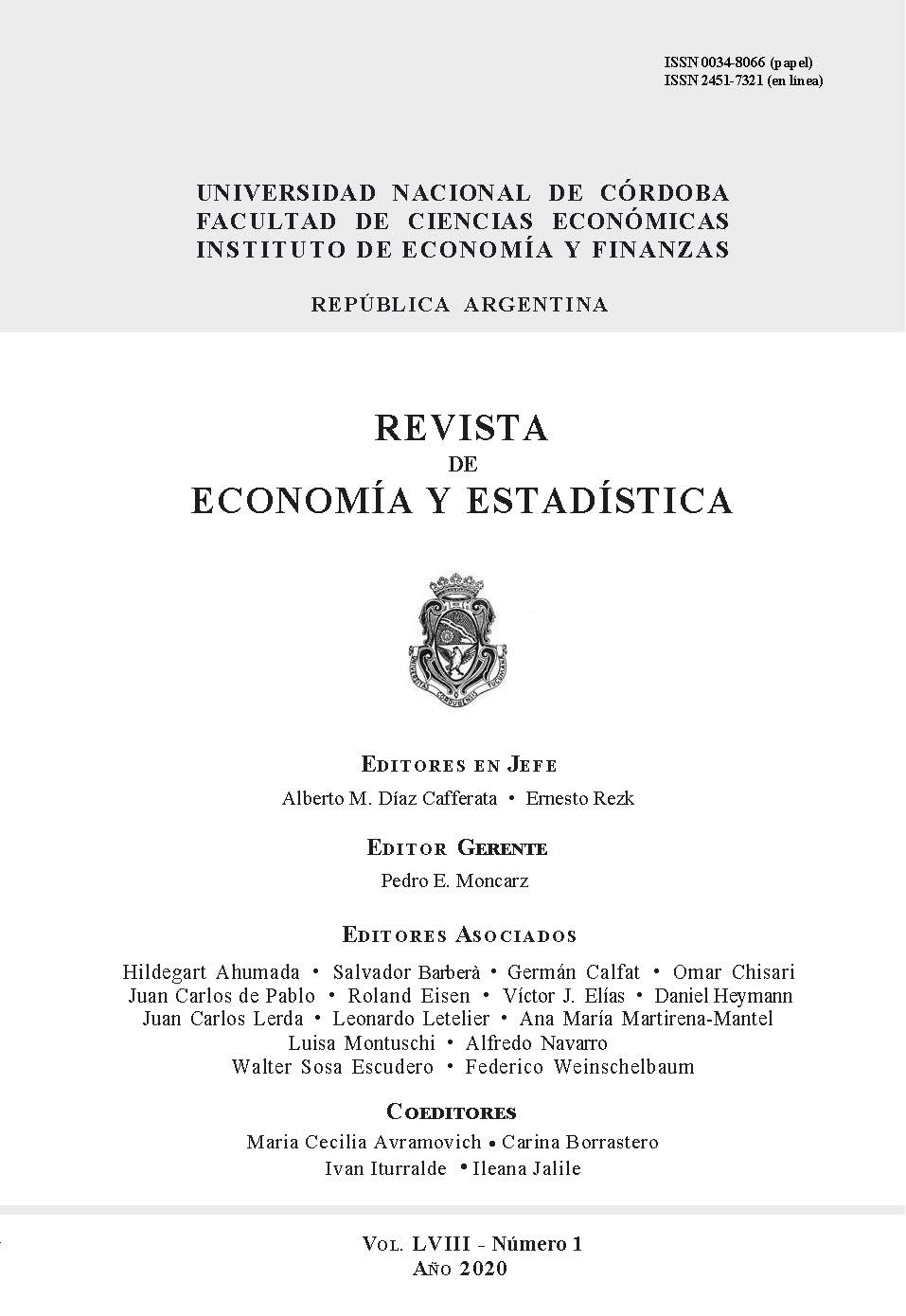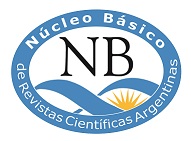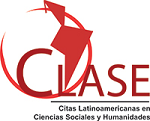Work Process, Capital Accumulation and its Impact on Health
DOI:
https://doi.org/10.55444/2451.7321.2020.v58.n1.31869Keywords:
work process, division of labour, labour force , economic surplus, working conditionsAbstract
In this document, we will try to show the direct relationship between, on one hand, the social and technical division of work that prevails in work processes and, on the other hand, the accumulation of capital and the health of workers in an integral sense. There are already validated knowledge about the consequences of working conditions and environment on physical health, but there is no full conscience yet of the impact that changes in working processes that spread as consequence of the crisis of the productive system, have on psychic and mental dimensions, naturalized phenomenon that has become invisible due to theoretical inadequacy, shortage of researches and because they seek its cure in the psychological treatment, without perceiving that workers somatise pain and suffering, which causes numerous illnesses. in the psychological treatment, without perceiving that workers somatise pain and suffering, which causes numerous illnesses.
Reception date: March 6, 2020
Acceptance date: May 26, 2020
Downloads
References
Boyer, R. (2016). La economía política de los capitalismos. Teoría de la regulación y de la crisis. UNM Editora.
Instituto Sindical de Ambiente, Trabajo y Salud (ISTAS) (2010). Manual del método CoPsoQ-istas21 para la evaluación y prevención de los riesgos psicosociales: para empresas con 25 o más trabajadores y trabajadoras (Versión 1.5).
Coutrot, T. (2003). La santé au risque du travail. Travail et Emploi, 96, 5-7.
Dejours, C. (1980). Travail, usure mentale: Essai de psychopathologie du travail. Bayard.
Dejours, C. (1988). Plaisir et souffrance dans le travail. Tomos I y II. AOCIP.
Dejours, C. y Gernet, I. (2012). Psychopathologie du travail. Elsevier Masson.
Gollac, M. (2011). Mesurer les facteurs psychosociaux de risque au travail pour les maitriser. París, Ministère du Travail, de l´Emploi et du Dialogue Social.
Gollac M., Castel, M. J., Jabot, F. y Ph. Preseq (2006). Du déni a la banalisation. Actes de la Recherche en Sciences Sociales, 163.
Gollac, M. y Volkoff, S. (2007). Les conditions de travail. La Découvert.
Karasek, R. A. (1979). Job demands, job decision latitude, and mental strain. Implication for job redesign. Administrative Science Quarterly, 24(2), 285-308.
Marglin, S. (1973). Origines et fonctions de la parcellisation des tâches. A quoi servent les patrons?. In A. Gorz, Critique de la Division du Travail. Ed. du Seuil.
Marx, K. (1971). El capital. Tomo 1, Volumen I, Libro I, El proceso de producción del capital. Siglo XXI Editores.
Neffa, J. C. (1998). Los paradigmas productivos taylorista y fordista y su crisis. Una contribución a su estudio desde la Teoría de la Regulación. Lumen-Humanitas - PIETTE-CONICET - Trabajo y Sociedad.
Neffa, J. C. (2015). Los riesgos psicosociales en el trabajo: contribución a su estudio. Ciudad Autónoma de Buenos Aires: Centro de Estudios e Investigaciones Laborales - CEIL-CONICET, Universidad Metropolitana para la Educación y el Trabajo. Centro de Innovación para los Trabajadores; Corrientes: Universidad Nacional del Nordeste. Facultad de Ciencias Económicas; La Plata: Universidad Nacional de La Plata. Facultad de Ciencias Económicas; Moreno: Universidad Nacional de Moreno. Departamento de Economía y Administración.
Neffa, J. C. y Denda, E. (Coord) (2016). Trabajo y salud de los no docentes de la UNLP. Los riesgos psicosociales en el trabajo y su prevención. Universidad de Buenos Aires - Facultad de Ciencias Económicas; Universidad Nacional de La Plata.
Neffa J. C. y Henry, M. L. (Coord.) (2017). ¿Quién cuida a los que cuidan? Los riesgos psicosociales en el trabajo en los establecimientos privados de salud. Documentos de Trabajo Nro. 1, Instituto de Investigaciones Administrativas FCE UNLP.
Neffa, J. C., Korinfeld, S. y M. L. Henry (2017). Trabajo y salud en puestos de atención al público: una investigación sobre riesgos psicosociales en el trabajo en ANSES. SECASFPI.
Organización Internacional del Trabajo (1974). Por un trabajo más humano. Memoria del Director General, Ginebra.
Organización Internacional del Trabajo (1976). El Programa Internacional para el Mejoramiento de las Condiciones de Trabajo (PIACT). Ginebra.
Organización Internacional del Trabajo (2017). Riesgos psicosociales, estrés y violencia en el mundo del trabajo. Boletín Internacional de Investigación Sindical, Ginebra.
Siegrist, J. (2013). Reconnaissance et santé au travail: de l’évidence scientifique à l’action. Colloque International DIM GESTES: Quelles actions pour un autre travail, 10 y 11 de Junio, Montrouge, Francia.
Wisner, A. (1988). Ergonomía y condiciones de trabajo. Humanitas.
Downloads
Published
Issue
Section
License
Copyright (c) 2020 Julio César Neffa

This work is licensed under a Creative Commons Attribution-NonCommercial-NoDerivatives 4.0 International License.
Authors who have publications with this journal agree to the following terms:
Authors retain their copyright and grant the journal the right of first publication of their work, which is simultaneously subject to the Creative Commons Attribution-NonCommercial-NoDerivatives 4.0 International License that allows third parties to share the work provided that its author and first publication in this journal are indicated.
Authors may adopt other non-exclusive licensing arrangements for distribution of the published version of the work (e.g. depositing it in an institutional telematic archive or publishing it in a monographic volume) as long as the initial publication in this journal is indicated.
Authors are allowed and encouraged to disseminate their work via the Internet (e.g. in institutional telematic archives or on their website) before and during the submission process, which can lead to interesting exchanges and increase citations of the published work. (See The Open Access Effect)










